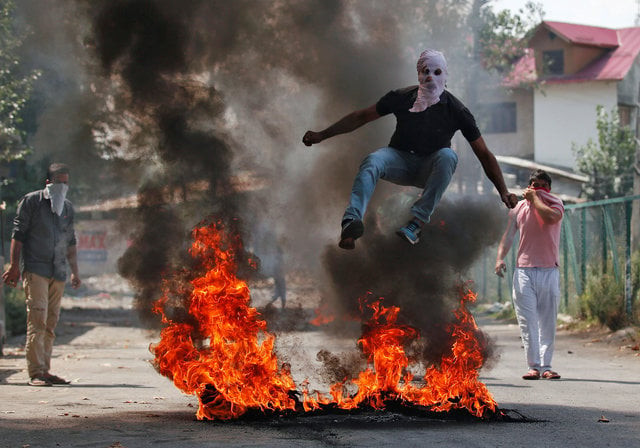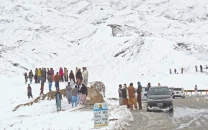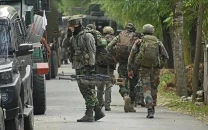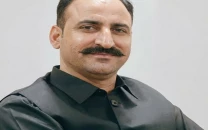Curfew imposed in Indian Kashmir on Eid as drones keep vigil
Seventy-six protesters have been killed and more than 7,000 wounded in clashes since July

A man in a balaclava jumps over burning debris during a protest against the recent killings in Kashmir, in Srinagar, India September 12, 2016. PHOTO: REUTERS
Seventy-six protesters have been killed and more than 7,000 wounded in clashes since July in the worst violence in six years in the disputed territory. Two police officers and more than 5,000 security personnel have been wounded.
PM dedicates Eidul Azha to Kashmiris
Authorities decided to impose a curfew and keep an aerial watch after reviewing the situation ahead of the festival, a police spokesman said on Monday.
On Tuesday, Kashmiri separatists are scheduled to march to the United Nations Military Observers Group India Pakistan (UNMOGIP) Office in Srinagar, the state capital.
"It has become imperative to impose a strict curfe in view of the separatist march," the spokesman said.
Mobile internet and cell phone services have been partially blocked ahead of the festival, the second such disruption since July 9, the day after security services shot dead Burhan Wani, a 22-year-old militant known for his calls to arms on social media.
Five dead in strife-torn Indian-held Kashmir
Wani led Hizb-ul Mujahideen, prominent among the groups fighting Indian control of the majority Muslim region.
His death came amid a rise in violence and separatist sentiment across the state, which has been at the centre of a decades-long tussle between India and Pakistan.



















COMMENTS
Comments are moderated and generally will be posted if they are on-topic and not abusive.
For more information, please see our Comments FAQ